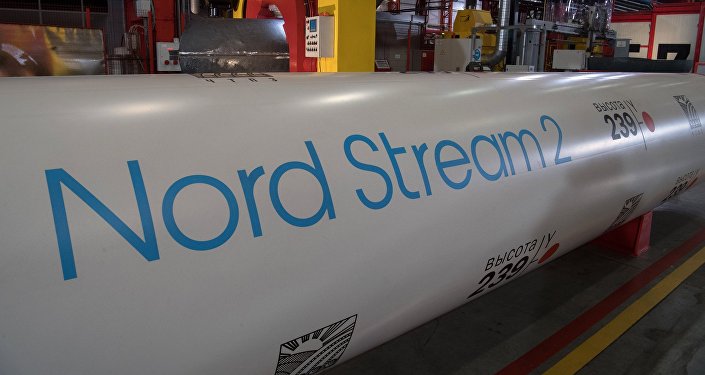Nord Stream 2 Sanctions Included in U.S. Defense Bill
WASHINGTON (Reuters) - Sanctions that could hinder one of Moscow's most important projects in Europe, the Nord Stream 2 natural gas pipeline, have been included in the annual U.S. defense policy bill, two congressional aides said on Wednesday.
The sanctions in the compromise National Defense Authorization Act between lawmakers in the House and Senate would penalize companies facilitating the construction of the pipeline, including ships helping operations to lay pipelines or moving rock formations on the sea bed.
The sanctions also target companies providing insurance or secondary insurance for its construction and certification for the pipeline in Denmark. The bill would become law only after being passed by both chambers in Congress and signed by President Donald Trump.
The $11 billion Nord Stream 2, led by Russia's state energy company Gazprom, would double its existing pipeline capacity to take gas undersea to Europe via Germany. It would bypass Ukraine, which depends on lucrative transit fees.
Gazprom and Germany say Nord Stream 2 is purely a commercial project. Gas demand in Germany is growing as it cuts dependence on nuclear and coal power.
The Trump administration and lawmakers from both parties believe the pipeline would strengthen President Vladimir Putin's economic and political influence over Europe. The Trump administration also supports boosting exports of liquefied natural gas to Europe.
The sanctions backers hope the measures will prevent Gazprom from using the Akademik Cherskiy, a Russian pipe-laying vessel, to finish a final 75 mile (120 km) stretch of the project in Danish waters.
Nord Stream 2 did not immediately respond to a request for comment.
The agreement, first reported by Bloomberg, includes language from an earlier bill spearheaded by Senators Jeanne Shaheen, a Democrat, and Ted Cruz, a Republican.
Nord Stream 2 spokesperson Jens Mueller said the company had yet to evaluate details of the draft bill but that the Cruz-Shaheen legislation would directly or indirectly hit about 120 companies from more than 12 European countries.
"It is up to governments and the European Commission to protect European companies from illegal extraterritorial sanctions," Mueller said.
The bill also includes a provision from Representative Eliot Engel, a Democrat and the leader of House Foreign Affairs, requiring allies to be notified before imposition of sanctions. Engel has opposed the project but has said that sanctions could leave Russia "off the hook" while hitting European companies helping the project.
Related News
Related News

- 450-Mile Eiger Express Pipeline Gets Green Light for Permian-to-Gulf Natural Gas Transport
- Energy Transfer’s Lake Charles LNG Project Wins Export Extension
- Kinder Morgan Launches Binding Open Season for Texas-to-Arizona Pipeline Expansion
- Harvest Midstream to Acquire 1,500 Miles of MPLX Pipelines in $1 Billion Deal
- ATCO’s 143-Mile, 1.1 Bcf/d Yellowhead Pipeline Project Wins Regulatory Approval
- Hungary to Start Talks with Qatar About Buying LNG
- Japan Becomes Top Buyer of LNG from Russia's Sakhalin 2
- BayoTech Relocates Northern California Hydrogen Hub to Accelerate Deployment
- Energy Transfer to Build $5.3 Billion Permian Gas Pipeline to Supply Southwest
- Ontario Seeks Study on Alberta-to-Ontario Pipeline and James Bay Port Corridor





Comments